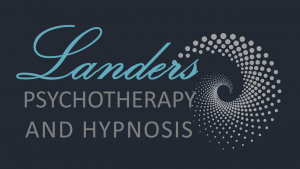Hypnosis:
Hypnosis is a state of consciousness that includes heightened focus and concentration and reduced peripheral awareness along with an increase in relaxation and suggestibility.
We are all susceptible to being in a hypnotized state. It is likely that at some point in your life you have already been in a trance. For example, you might have been in a trance when you were driving somewhere and barely remembered making the drive because you were daydreaming; or perhaps during a time when you were so focused on something that you blocked out external stimuli.
Hypnotherapy:
Hypnotherapy is a form of therapy using hypnotic trance in a safe and directed way. It helps people work with their unconscious mind to achieve therapeutic goals such as reduced anxiety, releasing stuck patterns, or increasing a desired behavior.
It is not uncommon for people to hold traumas that result in emotional reactivity and maladaptive behaviors. This is where hypnosis can be particularly helpful as it helps the client achieve a deeply relaxed state which then helps buffer the emotional reactivity while working with the trauma. Age regressions (going back in your memory bank in time) may be used to rescript and release the trauma.
Hypnotherapy and Suggestions:
Hypnosis is used to help a client turn down their thinking mind and gain access to the unconscious mind. Once in trance, the unconscious mind is more able to receive suggestions that help support the desired changes. In our work together prior to “going into hypnosis,” we create some or all of the suggestions that you will receive. I find this helps the thinking mind to calm down and step aside because it already knows where we are heading and does not feel the need to stay “on guard.” Using suggestions created specifically for your personality and your situation is much more effective than using generic suggestions that are done during group or stage hypnosis.
Hypnotherapy and Process/Analysis:
Because we all have built up “defenses” that were developed in our early years to help protect us from real or perceived threat, it is often necessary to further explore the root cause of the problem before any proposed suggestions can really take hold. During our time together, we will use a variety of ways to address root causes, release any trauma, and create a new path towards healing and wholeness. Suggestion hypnotherapy is a very effective tool in this process of growth.
Hypnosis Training and Experience:
- American Society of Clinical Hypnosis (ASCH)
- American Academy of Clinical Hypnoanalysts (AAMH)
- Associate Board Member AAMH (2019-2020)
- Society for Clinical & Experimental Hypnosis (SCEH)
Frequently Asked Questions
What if I cannot be hypnotized?
On occasion, there are individuals that are not hypnotizable during therapy because their thinking mind prefers to stay active. That is Ok. There are other helpful styles of therapy available. With that said, some of my clients that were concerned they could not be hypnotized were quite surprised to find they slipped into a comfortable trance with ease. As with most things, hypnosis takes practice. The more you do it, the more easily your mind can go into a hypnotic trance.
Does the hypnotherapist have control over me?
No. You are always the one in charge during hypnosis. You will not do something that is against your will or out of alignment with your moral or ethical beliefs while in hypnosis. All hypnosis is called “self-hypnosis” because you are allowing it to happen. The hypnotherapist is simply the guide that offers you help during your hypnotic experience. Rest assured, when we are working together you will not cluck like a chicken!
Could I get stuck in hypnosis?
When coming out of a hypnotic state you will feel more rested and relaxed. The positive effects will continue but upon awakening you will be alert and have all of your faculties. If for any reason you would need to come out of hypnosis quickly, you would easily be able to access your “thinking mind.”
How deeply will I go into trance and what will it feel like?
There are four primary states of consciousness, all associated with particular brain wave activity (see chart below). During hypnosis, you may experience a lighter trance (Alpha waves) or a deeper trance (Theta waves). When in a lighter trance, your thinking brain is still somewhat active, but you are relaxed and open to suggestion. It feels similar to the moments before you drift off to sleep. When in a deeper trance, you are deeply relaxed and your unconscious mind can hear suggestions and communicate with me but you may not consciously remember everything that was said upon coming out of hypnosis. Whether you are in a lighter trance or a deeper trance you will still receive the full benefits of hypnosis.
Here are the states of consciousness and the brain waves associated with them:
- Beta: Alert. Doing daily activities with logic and thinking. 12.5-30 Hz
- Alpha: Relaxed, daydreaming, in light hypnosis – opening the doorway to the subconscious mind. 8-12 Hz
- Theta: Deeply relaxed, reduced consciousness, greater access to the subconscious mind. Deeper hypnosis. 4-7 Hz
- Delta: Deep restorative sleep. .05 – 4 Hz


